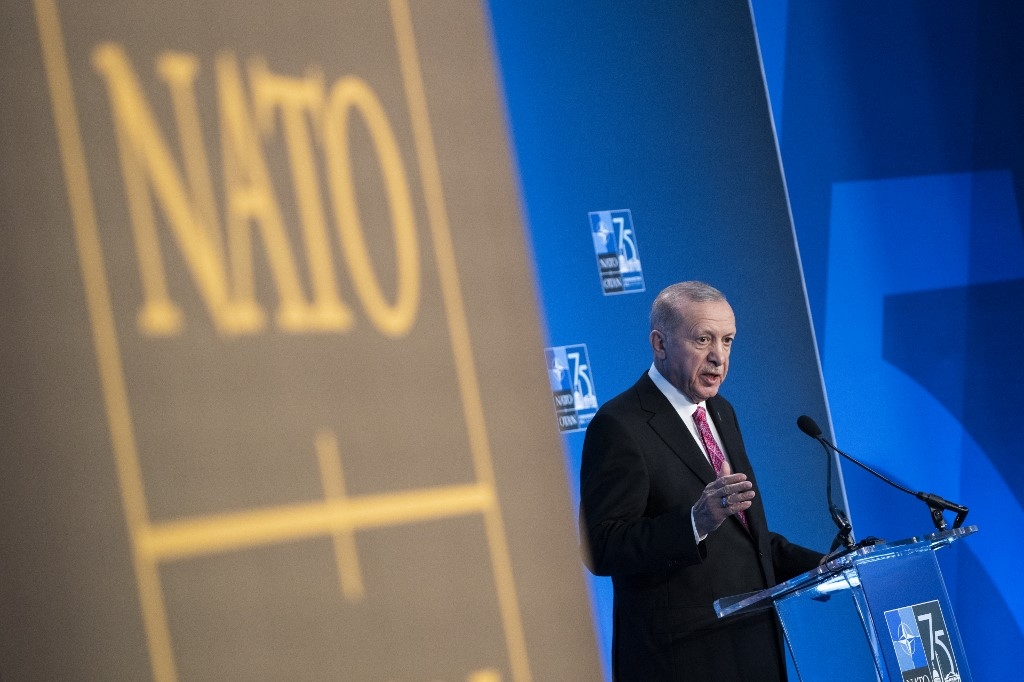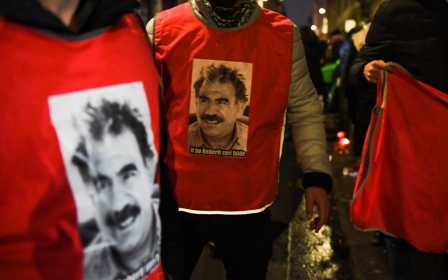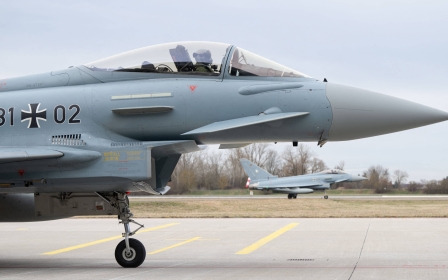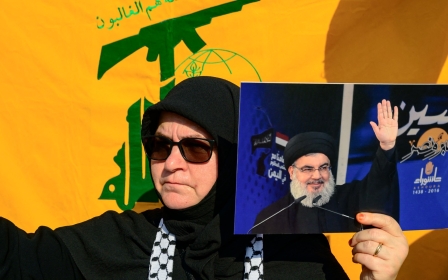Turkish public support for the EU and Nato surges after Ukraine war

The Turkish public’s support for western blocs such as the European Union and Nato has received a significant boost since the beginning of Russia-Ukraine war, a new survey by Pew Research Center revealed on Wednesday.
It found that Turks are more positive now in their views towards Nato, which Turkey has been a member of for decades. Support for the alliance has increased from 25 percent (in 2019) to 42 percent earlier this year.
When it came to the EU, the change was also notable. Fifty-six percent of Turkish adults surveyed said that they would favour Turkey becoming a member of the EU. Support for membership was only 40 percent in 2017.
The EU launched officials accession talks with Turkey in 2005, but concerns around democratic backsliding and the rise of right-wing politics - as well as member state Cyprus blocking several chapters in the accession negotiations - have effectively frozen the process.
“The Turkish public has been increasingly concerned by Russia’s invasion of Ukraine and they are looking to the western organisations for stability in the region,” Ceren Kenar, an independent analyst, told Middle East Eye.
New MEE newsletter: Jerusalem Dispatch
Sign up to get the latest insights and analysis on Israel-Palestine, alongside Turkey Unpacked and other MEE newsletters
“Turkey has been a staunch member of Nato throughout the Cold War against Soviet Russia after Moscow’s annexation threats towards its straits during the Second World War.”
In addition, hyperinflation, which has persisted over recent years, has encouraged Turks to look to the EU for economic benefits that could stabilise Turkish markets, Kenar added.
'Turks support the middle ground'
Ankara's relations with Nato have been frought over a number of issues, including Turkey's purchase of Russian-made S-400 missile systems. Despite the purchase of S-400s, the Turkish government has backed Ukraine since Russia's invasion began in 2022 through the sale of drones and other weaponry.
Only a third of Turks have a positive view of the United Nations and just 30 percent of them see Russia favourably, the survey found. Twenty-six percent had a positive view of China, and only 18 percent of Turks expressed positive feelings towards the United States.
'For Erdogan voters, Russia and Nato aren’t mutually exclusive'
- Ceren Kenar, independent analyst
The positive opinion of Russia decreased from 39 percent in 2019 to 30 percent this year, following the war in Ukraine.
Sixty percent of Turks had no confidence in any of the world's major leaders. The Ukrainian President Volodymyr Zelenskyy polled the highest, with 31 percent confidence. Russian President Vladimir Putin followed him with 29 percent.
Notably, people who support the Turkish President Recep Tayyip Erdogan were found to hold roughly equally positive views of both Russia and Nato.
Forty-two percent of Erdogan supporters held a favorable opinion of Russia, while 44 percent of the president’s backer also had favourable views on Nato.
“For Erdogan voters, Russia and Nato aren’t mutually exclusive,” Kenar added. “The Turkish public mostly supports the pragmatic middle ground, maintaining relations with Moscow but also remaining in the Nato alliance.”
Erdogan’s own popularity also appears to have taken a hit since 2017, when it surged to 75 percent after a coup attempt. It has dropped 32 percentage points, to 43 percent, this year.
Erdogan’s main rival in the 2023 presidential elections, Kemal Kilicdaroglu, the former chairman of the opposition Republican People’s Party (CHP) who was defeated at the polls, saw his support rise from just above 20 percent in earlier polls to 27 percent this year.
Pew Research Center’s Global Attitudes Survey in Turkey was conducted between 29 January and 11 March this year via face-to-face interviews with 1,049 people throughout the country.
Middle East Eye delivers independent and unrivalled coverage and analysis of the Middle East, North Africa and beyond. To learn more about republishing this content and the associated fees, please fill out this form. More about MEE can be found here.




